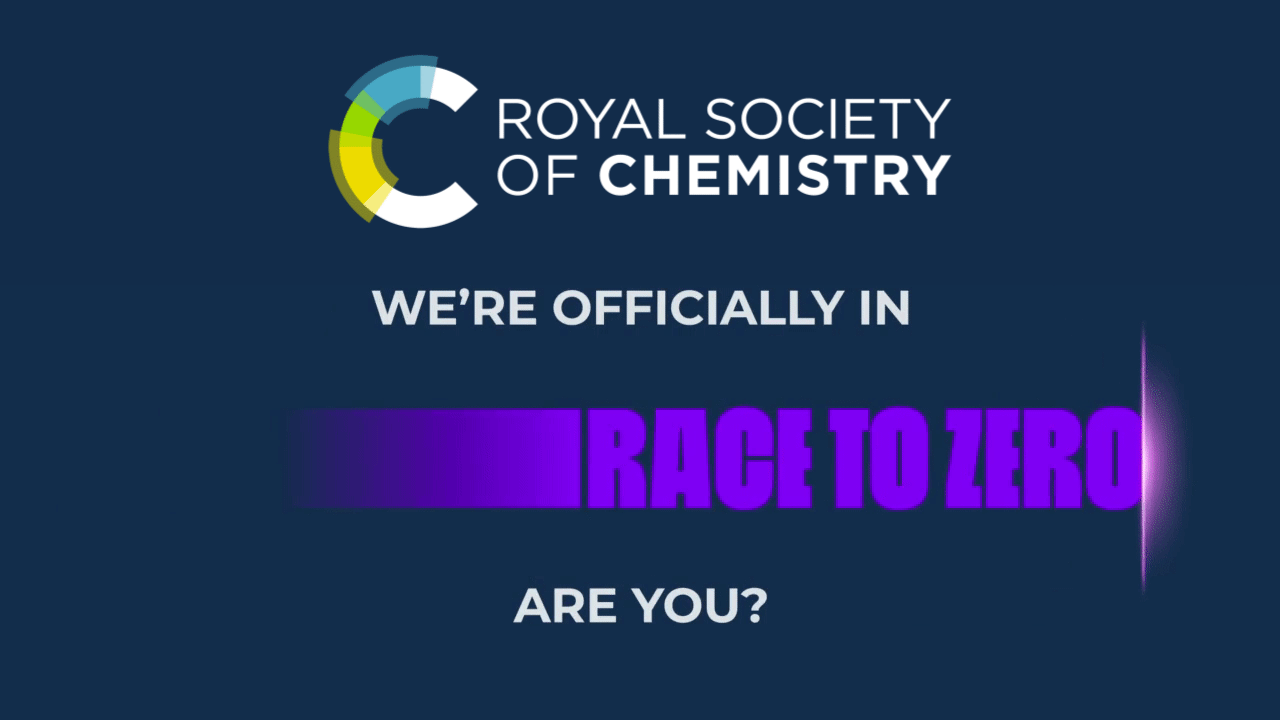RSC commits to net zero carbon emissions by 2040
The Royal Society of Chemistry will reduce its net carbon emissions to zero by 2040, our president and chief executive announced yesterday at our Annual General Meeting.
Joining the UN Race to Zero is just one of a number of commitments and initiatives the RSC is embarking on as part of a new sustainability programme.
RSC president Professor Tom Welton said at the AGM: “Chemistry is at the heart of sustainability, which encompasses some of the most urgent societal challenges of our time; perhaps top of the list is climate change. It is essential that the RSC takes a leadership role on behalf of chemistry and chemical scientists everywhere, particularly with COP 26 being held in Glasgow this year.”
Chief executive Dr Helen Pain added: “’Net Zero’ is a science-based goal: it’s the point we stop contributing to further warming. We start together down this path today, and the next decade is crucial… and so our path to net zero includes a milestone by 2030 of at least 50% reduction, compared with 2019.”
Professor Welton promised that alongside 2021’s Trustees’ report, the organisation would present a full set of carbon accounts and plans for how we will achieve net zero. He said: “This will mean considering absolutely everything we do, from international travel to the suppliers we work with. And it will be a joint effort: we all need to consider the climate impact of our actions – and minimise it where possible.”
Chemistry, Sustainability and the Circular Economy
Our commitment to zero carbon emissions by 2040 is just one of many initiatives we are starting or continuing as part of a strategic effort to maximise chemistry’s contribution to sustainability.
From influencing school curricula to making sustainability research more accessible in open access journals, as well as demonstrably shifting government policy through public awareness campaigns, we are using every strength we have. Sustainability is one of our members’ top priorities for chemistry and the RSC, and a priority in Generation Z’s study and career decisions.
Our strategic approach to sustainability outlines how we will use our influence to put sustainability in the spotlight, demonstrating how chemical science can provide solutions to the associated challenges, encourage more people to study and work in this amazing profession and leave a legacy for future generations.
Professional Bodies Climate Action Charter
Earlier in the week we became one of the original supporters of the Professional Bodies Climate Action Charter, alongside eleven other professional bodies – in total representing more than 400,000 professionals – and a further 300 member organisations. It commits us to support members to prioritise both the UN Sustainable Development Goals and the Paris Agreement in their work.
Dr John Broderick, Royal Society of Chemistry Policy Advisor on Climate Change and Sustainability said: “Our community has highlighted the importance of climate change – our members want to see their professional body act alongside governments, businesses and other organisations to play our part in combating a global issue with implications for every one of us.
"We’re glad to take up that challenge, to convene the power of our international community and to empower our members to do more.”
SDG Publishers Compact
We have also signed the SDG Publishers Compact, a UN-led initiative designed to inspire action among publishers. Launched at the 2020 Frankfurt Book Fair in collaboration with the International Publishers Association, the Compact aims to accelerate progress to achieve the Sustainable Development Goals (SDGs) by 2030.
The principles and aims outlined by the United Nations Sustainable Development Goals (SDGs) completely align with Royal Society of Chemistry values and our purpose: to help the chemical science community make the world a better place. It underpins and supports many of our existing projects and initiatives. By signing the Compact we join almost a hundred other global publishers in committing to a range of actions related to the SDGs.
Many of the SDGs are underpinned by chemistry, and so it is right for us to become the first major learned society and dedicated chemistry organisation to sign this compact and demonstrate the importance of chemistry to these goals.

